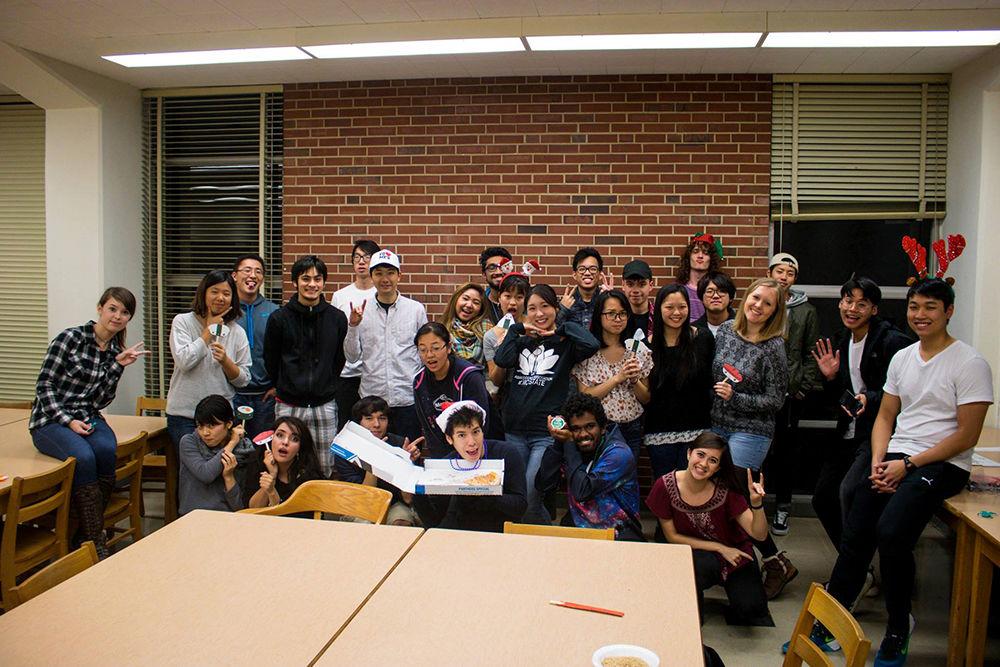Photo courtesy of Asian Students in Alliance (ASIA)
Aditi Dholakia | Staff Writer
With much of their restructuring now complete, Multicultural Student Affairs (MSA) is now offering support and advising for the Asian Pacific Islander Desi American (APIDA) community at NC State. MSA, which historically focused on offering support for Hispanic/Latinx, black and Native American communities, hopes to provide more comprehensive support for all students at NC State.
Marcela Torres-Cervantes, the assistant director of community outreach and engagement at MSA, said that it’s important to make sure that MSA is available to all students, and not just individual student groups.
“As times change globally,” Torres-Cervantes said, “we start recognizing, ‘Oh, things have been happening. Things have been excluded; there’s a need for change.’ We’re inherently going to be interacting with any type of student, white students included, or any other domestic, international. So we’re going to see many different opportunities.”
Emotional and cultural support for students within the APIDA community is especially needed, according to Torres-Cervantes. Although Asian students often receive academic support, Torres-Cervantes said that advising for APIDA students needs to go beyond that.
“We know that there is a model minority myth,” Torres-Cervantes said. “There’s this idea that Asian students are succeeding academically, so they must be fine. As a whole, we know that we’re more than just students. We’re more than just grades. We are people too, so making sure that was a priority was a really big thing for us.”
David Chang, a fourth-year studying environmental science, is the president of Lambda Phi Epsilon International Fraternity and also serves as the community liaison for the Asian Students in Alliance council. Chang said that having support and advising from MSA is going to be helpful in elevating APIDA voices at NC State.
“I find it phenomenal,” Chang said. “I spoke to Marcela quite a bit about this. It’s very exciting. As I mentioned, it’s very obvious that the APIDA community does have a lack of voice. I would say it’s also very inspirational. I strongly believe that this is the first step in making NC State more aware and involved in the APIDA community and those conversations.”
According to the Office of Institutional Research and Planning, international students made up 12.3 percent of NC State’s total population in 2015. Furthermore, Asian-American students made up 4.8 percent of the total student population. Torres-Cervantes said, however, that numerical support does not negate prejudice against and within the APIDA community.
“There are still microaggressions that happen,” Torres-Cervantes said. “Just because you may have more numerical support doesn’t mean that you aren’t still a person of color living in the United States and need some sort of support outside of just your advisor. We saw that as a need area, and that’s what we’re trying to be more helpful in.”
Torres-Cervantes also said that there needs to be more cohesion within the community because the term “Asian” is often assumed to mean East Asian, which excludes other parts of the APIDA community. Advising and support from MSA, she said, is a learning process in understanding the variety of different APIDA lived experiences.
Chang said that in order for APIDA voices to be heard on campus, the community itself has to come together and work together.
“There is a sort of separation. Even in terms of the Asian Students in Alliance council, we don’t really see a lot of Pacific Islander representation or Desi American representation,” Chang said. “There is definitely a sense of separation that we do have from each other. I would love to see the community come closer together. In the future, I really do hope to see more collective empowerment.”







